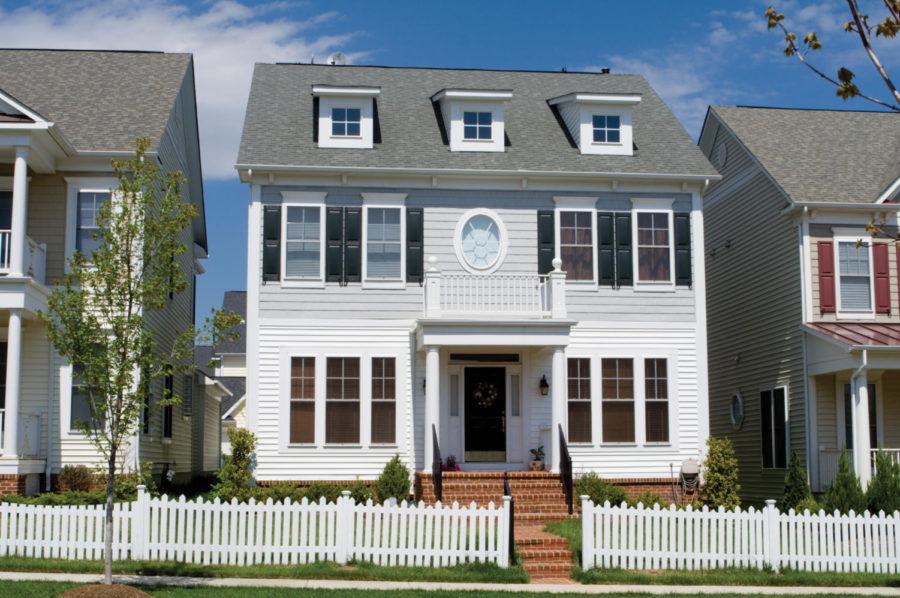Belding: The middle class is an attitude, not a number
Opinion: Belding 10/30
October 30, 2012
Money complicates things. As Pink Floyd said decades, ago, “Money, it’s a crime / Share it fairly / But don’t take a slice of my pie.” On a related note, one of the larger issues of the 2012 presidential campaign has been the fate of the middle class.
During the first presidential debate, President Barack Obama said, “If you are lowering the rates the way you described, governor, then it is not possible to come up with enough deductions and loopholes that only affect high-income individuals to avoid either raising the deficit or burdening the middle class. … It’s math. It’s arithmetic.” The Obama campaign website even has a tax calculator to compare tax bills under the plans of Obama and Mitt Romney.
The Democratic Party’s national platform states: “We gather to reclaim the basic bargain that built the largest middle class and the most prosperous nation on Earth – the simple principle that in America, hard work should pay off, responsibility should be rewarded, and each one of us should be able to go as far as our talent and drive take us.” It goes on to state that “Reclaiming the economic security of the middle class is the challenge we must overcome today.”
Republicans use the same rhetoric. Also in the first presidential debate, Romney said he does “want to reduce the [tax] burden being paid by middle-income Americans.” And: “The people who are having a hard time right now are middle-income Americans. Under the president’s politics middle-income Americans have been buried. Middle-income families are being crushed.” Further, the Republican Party’s platform states: “America has always been a place of grand dreams and even grander realities; and so it will be again, if we return government to its proper role, making it smaller and smarter.” Among the conditions for recapturing those “grand dreams and even grander realities” is “lift[ing] up the middle class.”
Definitions of the middle class vary. One economist states middle-class income is approximately between $25,000 and $100,000 annually, since the middle 60 percent of Americans lie within that range. A recent poll by the Pew Research Center defines the middle class as an income bracket of between $39,000 and $118,000 for a three-person family. In an interview with ABC reporter George Stephanopoulos, Romney stated that “middle income is $200,000 to $250,000 and less.” For all intents and purposes, Obama agrees, since he wants to retain the Bush tax cuts on families making less than $250,000 per year.
Although the rhetoric of the candidates obscured the fact the middle class is more abstract than a few hundred dollars in additional tax liabilities, the middle class is set apart from the wealthy and impoverished classes in a big, classically defined way understood by the people who directed America during the Revolutionary War and early republic. Their idea rests in the closing words of the Declaration of Independence: “And for the support of this Declaration, with a firm reliance on the protection of divine Providence, we mutually pledge to each other our Lives, our Fortunes and our sacred Honor.”
At the season finale of Aaron Sorkin’s newest show, “The Newsroom,” one of his characters, Sloan Sabbith, adapted an economic idea to demonstrate the self-sacrifice that goes with the founders’ vision of virtue. She said: “The greater fool is someone with the perfect blend of self delusion and ego to think that he can succeed where others have failed. This whole country was made by greater fools.”
One of the most eminent historians of the American Revolutionary era, Gordon Wood, described the Republican virtue that defines the middle class. He wrote: “Liberty was realized when the citizens were virtuous — that is, willing to sacrifice their private interests for the sake of the community, including serving in public office without pecuniary rewards.” Further, “To be completely virtuous citizens, men … had to be free from dependence and from the petty interests of the marketplace. Any loss of independence and virtue was corruption. … Public virtue was the sacrifice of private desires and interests for the public interest.”
Being part of the middle class precludes indulging in the pleasure-seeking hedonism that is devoid of ambition and squanders away the fortunes of rich heirs and heiresses and prevents the poor from making their own. The middle class is the stewardship class that seeks to use what exists but only in such a way that allows us to pass on the foundation to future generations.
The “middle class” deserves better than to be displaced by “middle-income” Americans. It is a mentality, not a dollar amount. To the extent that we should discuss tax policy and spending in the terms of how they will affect the middle class, it is only to prevent ourselves from taking not only the interest that that bank account earns, but the principal that provides the base on which the interest grows. The middle class cannot be bought, sold or commodified. It is priceless.







